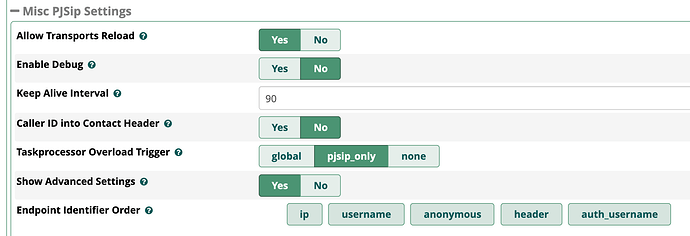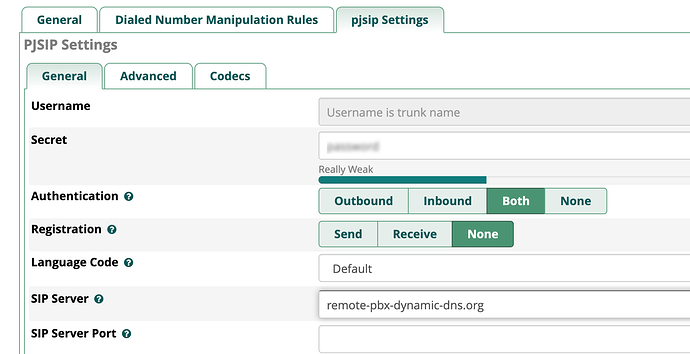I am having a problem using PJSIP with Dynamic IP Addresses.
In a simple scenario, lets say I have PBX (A) Running PJSIP and PBX (B) running chan_sip (or any other system for that).
Both run behind a router that have dynamic IP addresses and use a Dynamic DNS service to provide the addressing between the two, that works fine and up dates in a minute of a router reboot.
I have a trunk between the two to provide the ability to call extensions on either side from either side.
On initially booting up the two PBX’s all works well. However at some point the router on PBX (B) reboots and gets a new IP, the Dynamic DNS service updates as it should.
Initially the status of PBX (B) changes to off-line and calls from PBX (A) to PBX (B) fail.
Tech Resource Status
PJSIP PBX (B) OFFLINE
Then however as the dynamic DNS service updates the status changes to ONLINE and calls go through again.
Tech Resource Status
PJSIP PBX (B) ONLINE
However the entry for “Match” never updates, so calls from PBX (B) to PBX (A) fail as they present from the new IP address and won’t match the one stored in PBX (A)
Endpoint: PBX (B) Not in use 0 of inf
Transport: 0.0.0.0-udp udp 3 96 0.0.0.0:5060
Identify: PBX(B)
Match: 86.13.148.XX/32
This then become a permanent failure that only a asterisk restart on PBX (A) will rectify.
Has anyone been able to deploy a successful PJSIP PBX solution that has some PBX’s behind dynamic addresses? and if so I appreciate some understanding of how you achieved it.
I have tried a number of solution so far and have failed, would certainly appreciate some advice.
As a point of interest, if I move the trunk on PBX (A) back to chan_sip then IP address changes are resolved within a couple of minutes and the system returns to full functionality. On chan_sip I have had six PBX’s running with inter PBX’s trunks for over 5 years, can’t actually think of a user complaint in that time, but with PJSIP the failure points and complaints are now continuous.


